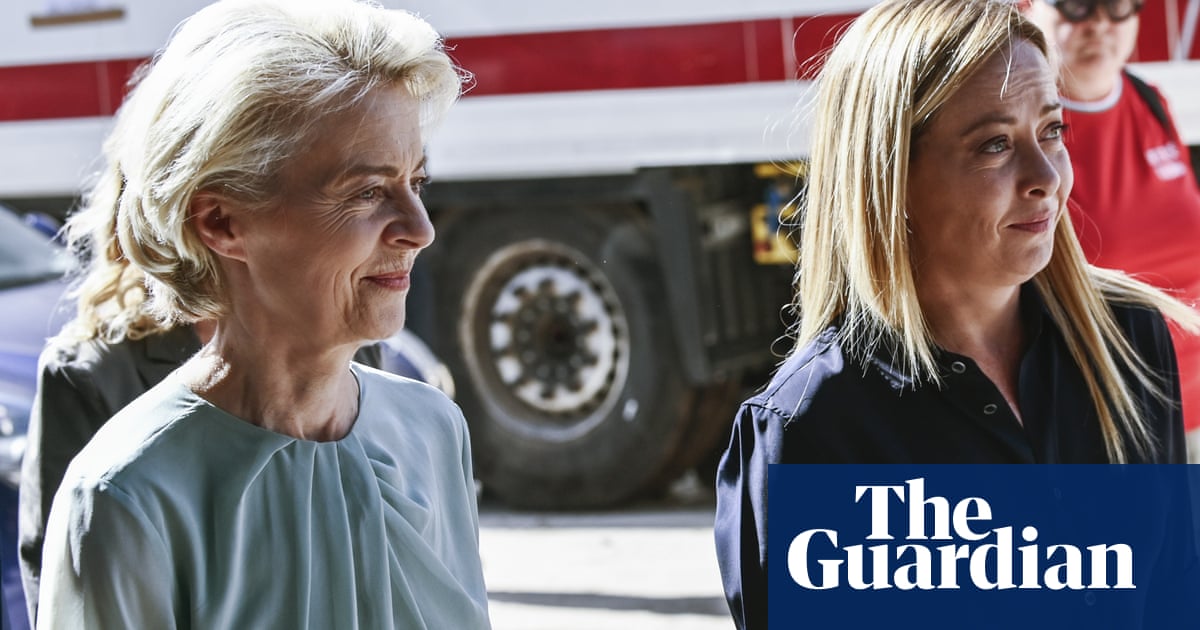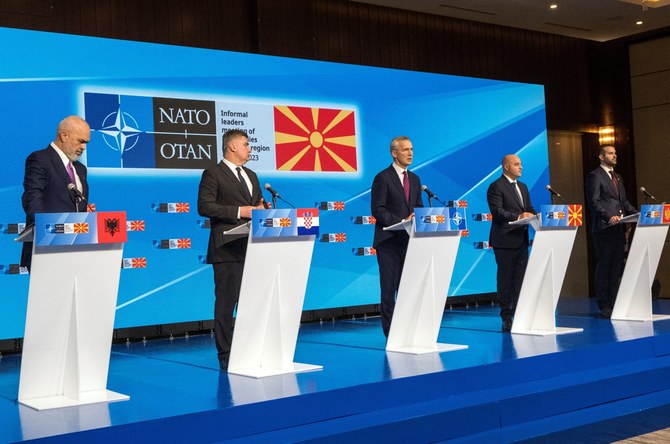
She’s the brash campaigner and paradoxical populist – the Brothers of Italy sister who has strongly partisan prescriptions for a country prone to a stagnant economy, a lagging birthrate and political stalemate. She intends to defeat these challenges by consolidating her own power. Giorgia Meloni is western Europe’s most ruthless tactical operator – a new kind of nationalist populist who defies the easy categories.
She’s also the ideological descendant of a dangerous tradition, formed in the Italian Social Movement, rooted in the the postwar incarnation of Benito Mussolini’s fascists and steeped in the adaptation of beguiling cultural tropes. After decades of fractious coalitions and technocratic solutions, supporters relish her dominant leadership approach and mission to “defend” the country from outside influences.
Meloni has now announced the “mother of all reform packages” , a power grab that would allow prime ministers to be directly elected on minority vote shares. She will first have to escape the opprobrium of opposition in parliament and win a possible referendum. Given her success in manoeuvring herself and her party from the fringes of Italy’s changeable landscape to outrun other far-right contenders such as Matteo Salvini and heirs to the Berlusconi legacy, it would be unwise to underestimate her chances.
Much has been said about Meloni’s personal appeal, as a single mother who advocates for nuclear families and who has vowed to raise the birthrate with subsidies for families as part of a campaign for “traditional” values.
This tough-as-nails southern politician certainly has a propensity to outwit competitors and critics and to end up in charge – but she then defies expectations all over again by moderating the raucous tone of her campaign rallies and presenting a more affable, attractive public face. She turned up at her first meeting in Brussels with a cake in tow: “We were expecting this monster,” one Eurocrat told me. “And we got this nice woman with a big smile and a cake.
But it’s not always about nice. If the Angela Merkel trope of sanctified woman-in-power were inverted, the Coraline-inspired “other mother” may well be Meloni – calling for tougher rules on immigration, fighting with the big neighbour, France, over allocations of asylum seekers and making common cause with Rishi Sunak over Rwanda-style gimmicks to cut asylum numbers. She is suspicious or worse when it comes to gay and trans rights and is sending mixed signals on how far she intends to defend abortion rights.
She is also a Tolkien fan – a 21st-century Galadriel with an attack instinct and interest in the power of mythology to unite countries feeling aggrieved about the impact of the free market and leftish identity politics on their identity and traditions. A major Tolkien exhibition crafted by the culture ministry, which opens this month, is in effect a “soft power” message that Meloni’s Italy is in control of cultural assets. But how does the emergence of a resurgent destra sociale (social conservative) movement feel on the ground?
I made the BBC Radio 4 documentary The Reinvention of Italy to test the warp and weft of opinion about her impact in north-east Italy. My producer Leala Padmanabhan and I explored attitudes to Meloni’s rule on a journey around the Veneto region – the sprawling area around the university city of Padua and hill towns such as Bassano del Grappa, at the foot of the Alps, which is the tourist backyard of Venice. But the region is also home to industrial areas – places that power the economy, rely on immigrant labour and struggle with dramatic demographic shortfalls.
Middle-aged mums gripe to us that the rising generation would “prefer to have a pet than a child” – which might not be such a common complaint if it weren’t for the fact that in this region the school day ends at 2pm, and it is overwhelmingly mums, rather than dads, who have to fit in the school run. We talk to a manufacturer of steel handles and fittings for windows and doors at a company with an all-female leadership team, who are thoroughly unimpressed by Meloni’s remedies but equally frank that the impact of the birthrate and Italians self-selecting out of industrial jobs makes them dependent on finding motivated immigrants for “doing and making things”, as an executive puts it.
When we speak to one of the highly skilled welders who arrived a few years ago from Romania, however, he turns out to be friendly to the Meloni method. “People should come [to Italy] safely and legally,” he says. Does he admire Meloni? “For sure yes.”
It’s a harder road for many workers who came either via asylum routes – often from Libya – or as illegal immigrants. Their stories vary: Stella is one of many immigrant badanti (informal care workers) who recalls being treated “like a slave” yet is resigned to a status as unintegrated outsider in a culture that emphasises family, community and belonging; Dabre, a Ghanaian worker, laughs hard at the idea he could ever be seen as Italian, but seems OK with that. Meloni’s appeal is to the many parts of society that admire the combination of matriarchal pride in Italy and a stroppy determination not to be corralled into the status of second-tier power in the EU.
The blunt charge that she’s really just an old-school fascist with a modern makeover hardly gets to her complexity, though there are certainly “blood and soil” traces in her devotion to tradition. She’s keen on international alliances and is widely seen to have jolted Emmanuel Macron out of complacency on the fraught issue of who should absorb migrants arriving on the southern island of Lampedusa.
If Meloni’s predecessors on the far right such as Salvini were flinty Eurosceptics – Silvio Berlusconi became a byword for self-serving indiscipline with the wrong foreign allies – she is more judicious. She has ended rifts with other leaders and supports Ukraine in its resistance to Russia as a symbol that Italy will not drift back into unreliable territory as a western ally. As one admirer put it to me, she “waters down the too-strong wine” of previous far-right figures, more modern in style and manner and more protean in her positions. In terms of solutions for the more pressing economic hurdles, dead weight of bureaucracy and sagging public services, it’s thin gruel – she has disposed with advisers from technocratic backgrounds and keeps a tight-knit group close, with scant access for any other than the most loyal journalists. The result is that power from Rome is wielded increasingly on her terms alone. Succeed or fail, this really now is Meloni’s Italy.
Anne McElvoy is executive editor at Politico. The Reinvention of Italy is on BBC Radio 4 on Tuesday 14 November, repeated on Monday 20 November












